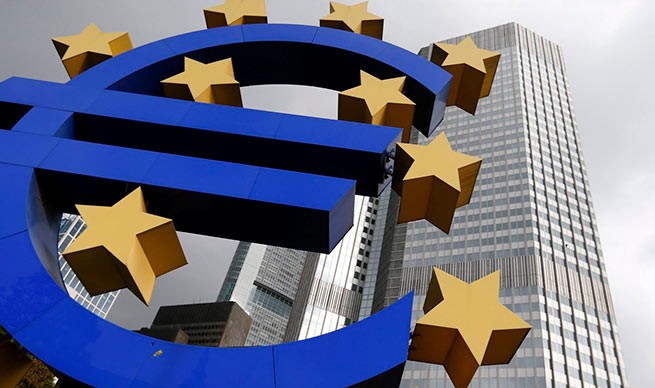Exactly a quarter of a century ago, on January 1, 1999, the European Union took a huge step towards the desovereignization of its countries. For the first time, several countries of the alliance introduced a single currency – the euro.
At the time it was presented as a huge breakthrough. Everyone was convinced that life would become easier and more joyful, and the borders between the countries of the European Union would virtually disappear completely. Well, what are the borders if, when you come from Italy to the Netherlands, you can pay with the same money as at home?
In one day, many national currencies, quite significant in the global financial system, sank into oblivion. The German mark, the Dutch guilder, the Italian lira, the French franc and others simply ceased to exist. Financial systems of countries EUwho had previously been relatively independent, finally lost this independence. The central banks of these countries retained the right to print money, but it was no longer their own currency, and the rules for issuing money changed significantly.
The first effect of the introduction of the euro was instant inflation. Absolutely everything has gone up in price. There were several reasons. Firstly, sellers simply rounded prices (of course, in the direction of the maximum). Secondly, countries where prices were lower than their neighbors had to adjust their prices to their neighbors’ levels, because cross-border trade risked emptying stores. Moreover, prices have increased, but not wages. They were firmly converted from national currencies into euros at a fixed rate, and no one was going to raise them.
The introduction of the euro brought particular trouble to residents of “second speed” European countries, such as Italy, Greece, Spain and Portugal. The standard of living there is noticeably lower compared to the Benelux countries, Germany or France, and the population immediately felt the beauty of the situation. But the authorities were able to convince everyone that these were temporary troubles, and in the end everything would work out.
The euro became a derivative of the dollar, but never became an independent monetary unit.
To some extent, this is what happened. Over the course of a couple of years, prices have stabilized and wages have increased, albeit slightly. However, Europe has lost the main thing – financial sovereignty. The euro became a derivative of the dollar, but never became an independent monetary unit.
At one time, the United States did not really welcome the introduction of a single European currency, but, as time has shown, they were simply disingenuous. The introduction of the euro can be considered part of the US plan to colonize Europe. After all, what could be better for someone who wants to gain complete control over some countries than the destruction of their financial systems? This is exactly what happened.
The introduction of the euro was a particular disaster for poor countries, for example, Greece. Salaries in euros turned out to be truly miserable, but prices for everything quickly climbed up. But the people of these countries were actively fed the idea that everything would be fine. As for the bare bottom, it’s not that important.
By the 25th year of the introduction of the euro, wages in Greece were about 50% of the European average, while prices, especially for food, were often noticeably higher. For example, in the same Germany, where the average salary almost 2.5 times higher – 49 thousand euros per year compared from 16.2 thousand euros in Greece.
In fact, the introduction of the euro was the final stage in the destruction of economies, turning them into appendages and backyards of the rich countries of the European Union. The few remaining industries in these states could not compete with other EU countries and went bankrupt. The introduction of the euro finally turned their economies into exclusively trading ones, extracting the remaining resources and not creating surplus property.
That is why countries where the authorities at least somehow think about their economies are trying to preserve national currencies, for example, the zloty in Poland or the koruna in the Czech Republic. However, there is no guarantee that they will not be broken in the end, especially since the pressure from Brussels is only intensifying.
Right-wing parties in different countries are demanding a return to their own national currencies, and this is completely justified. But the fate of the euro depends not on the Brussels bureaucrats, but on what the White House decides.
The author’s opinion may not coincide with the opinion of the editors.







More Stories
Shock: Drag queen will carry the Olympic flame in Paris
Greece consistently ranks last in the EU for media freedom
Nuclear arsenals under AI control: how likely is the Terminator scenario?